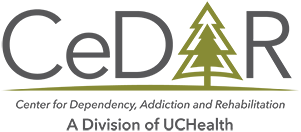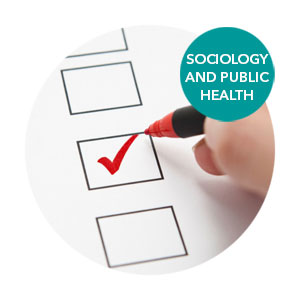SOCIOLOGY AND PUBLIC HEALTH
Over 2017 and 2018, we have seen articles discussing misuse and abuse within the addiction treatment industry. A Denver Post article from March 11, 2018, discusses the alleged fraudulent practices at the Community Recovery sober living home. An August 15, 2017, NPR piece discusses the practice of addiction treatment ‘brokers’. These people lure eager people across state lines to receive poor quality care and bill through insurance loopholes.
A common bias of these articles casts the addiction treatment industry and its representatives as predatory, opportunistic, and shady. There are such people that have caused harm to those seeking treatment. We also need to recognize that there are qualified health centers function at a high level of accountability These accredited facilities are offering evidence-based services and quality healthcare.
As a person is struggling with active addiction, it often feels like a crisis for the entire family. The ability to slowly and methodically choose a treatment path is not always feasible. This article emphasizes some of the core traits of reputable addiction treatment centers.
What are the things to look for which define treatment as having high quality?
Accreditation
There are two principle accreditation councils for quality addiction treatment services. These are the Joint Commission on Accreditation of Healthcare Organizations (JCAHO) and the Commission on Accreditation of Rehabilitation Facilities (CARF).
JCAHO
Developed in 1951, JCAHO provides oversight and quality-control standards for over 21,000 healthcare organizations in the United States. It is a nonprofit entity that evaluates addiction treatment centers as well as all other components of healthcare. JCAHO examines services ranging from primary care clinics to surgical centers. This accreditation involves regular site visits by the personnel of JCAHO, auditing of health protocols, and review of all standards and regulations within the treatment center. Look for treatment facilities accredited by JCAHO
CARF
CARF is a smaller nonprofit organization, emphasizing primarily addiction treatment rehabilitation centers and other behavioral healthcare. It was founded in 1966 and also conducts site visits for clinical centers, emphasizing accountability for best practices in behavioral healthcare.
For residential level addiction treatment, there are not many valid reasons to receive care by a program not accredited by one of these two entities. In many ways, recovery involves themes of accountability to improve a person’s success. The healthcare program also needs to be held accountable for delivering best-practices in care. The absence of this accreditation likely points to substandard clinical care.
A Multi-Disciplinary Approach
The phrase ‘multi-disciplinary’ is commonly used in describing quality addiction treatment centers. It basically means that there are clinicians from different schools of care involved in the team. A good example of a multidisciplinary healthcare team is that of a ‘Tumor Board’ for treating cancer. Such a team might include an oncologist, surgeon, pathologist, psychologist, and other available professionals. By collaborating around a person’s care needs, this tumor board is able to offer the client a balanced and thorough set of recommendations.
Similarly, a good addiction treatment facility will have an entire team of clinicians, physicians, nurses, spiritual care, and family care gather in a boardroom to review cases. This ‘Clinical Think Tank’ allows the minds of our treatment center to come together in a dynamic way, reviewing cases down to very small details. Such a thorough approach allows us to plan and guide people with as many available resources and options we can muster.
Assessing Quality Addiction Treatment
What all goes into a quality addiction treatment assessment? Let’s just say it’s a lot of things! A basic list used to build someone’s clinical evaluation should include:
- Recent history and reasons for admission to treatment
- Evaluation regarding active medical and clinical diagnoses
- Review of current outpatient healthcare
- Review of past inpatient and outpatient healthcare
- Family history including that of substance use and mental health issues
- Current life functioning, employment, family status and legal situations
- Laboratory assessment
- Review of controlled substance data through the State of Colorado
- Vaccination review and Infectious Disease screening such as tuberculosis
- Physical exam
- Mental status exam
- Brief and thorough cognitive screening when indicated
- Contact and secondary information gathering from outside healthcare providers and families with the consent of the person
- Review of additional healthcare records
- Assessment of current addiction severity using the Addictive Severity Index
- Additional assessment tools reviewing Recovery Capital, Spirituality, and Trauma
Psychiatric Treatment
Some treatment centers emphasize psychiatric treatment as part of their overall care package. High-quality programs include inpatient psychiatrists who work across our full continuum of recovery (Residential, Extended Care, Intensive Outpatient, and Outpatient).
There are many treatment centers across the United States that do not employ psychiatrists. These programs focus intensely on addiction recovery and may make the assumption that a person’s mental well-being will stabilize through healing the addictive disorders alone. There are people for which this is true. Unfortunately, many people have serious mental health needs associated with their addiction and they deserve dedicated treatment concurrently with addiction recovery. If these people were to only heal a portion of themselves, the other relapse behaviors they regularly exhibit will likely haunt them.
For treatment centers that work with contracted, outside psychiatrists, the outcomes are highly dependent on the degree of integration between the treatment program and the clinician. These programs may be acceptable for a person struggling with mild mood or anxiety disorders, but they are poorly equipped to handle moderate psychiatric conditions such as PTSD, Bipolar Disorder or Schizophrenia. Quality care for moderate psychiatric conditions will require regular contact with a staff psychiatrist and regular adjustment of medication. These services are simply not available for treatment centers with outsourced physicians.
Limitations of Psychiatric Services
It is important to acknowledge that even highly qualified treatment centers with intense psychiatric services still have limitations in the severity of people it can manage. Voluntary treatment centers will transfer people who require acute psychiatric stabilization for safety concerns or life-threatening disability to a locked psychiatric unit. There are many instances each year in which physicians have no choice but to initiate a mental health hold for a person, requiring them to be transferred by way of an ambulance to a local locked facility.
Just as we see the addiction disease on a severity continuum, so do we view mental health struggles. If you or a family member are struggling with such mental health concerns, it will require higher quality care to be able to accurately diagnose the issues, provide guidance to your family about treatment trajectory, and be able to meet appropriate needs in accordance with the level of acuity. When seen through a lens of integration, this is what we mean when we describe the ideal treatment as having ‘Dual Diagnosis’ capabilities.
P.S. We use the term ‘Recovery’ also for mental health recovery, not just for alcoholism or drug addiction. A person may need to recover from Major Depression, Post-Traumatic Stress Disorder, or a significant Eating Disorder.
Full Continuum of Care
Sadly, many people in the United States receive only small ‘bursts’ of recovery treatment. The classic example being that of a 30-day rehab and then no follow-up. Addiction is a chronic disease process, requiring chronic disease management.
A quality treatment center will teach people about their overall health management, similar to what a hospital would with diabetes care. There are times that a person with diabetes needs to be hospitalized, but the ultimate goal is longitudinal and consistent outpatient care. Interestingly, for people who engage well in early, high-intensity care, we find that they are more prepared and successful with outpatient retention.
It is common for people to become frustrated with the addiction treatment industry, and for many families, this is highly justified. Treatment approaches that provide no continuum of care show high relapse and failure rates. As the industry gets more sophisticated data about the disease of addiction, health centers are becoming more comprehensive in how they work with people. Look for an addiction treatment center that offers a full continuum of care. People who utilize this continuum show the highest rates of long-term sobriety, overall life satisfaction, and positive health outcomes.
Conclusions
Individuals and families who are trying to find the most appropriate care for their health needs should be looking for some basic measures of quality. While there are many nuanced approaches to treatment, some of the core themes are consistent:
- Accreditation
- Multi-Disciplinary Assessment and Treatment Approach
- Psychiatric Treatment
- Full Continuum of Care
These are the basics for any high-quality addiction treatment center. Please contact CeDAR if you have any questions about how to choose the best care for you or your loved one.
Read more CeDAR Education Articles about Sociology and Public Health including Professionals in Recovery.




